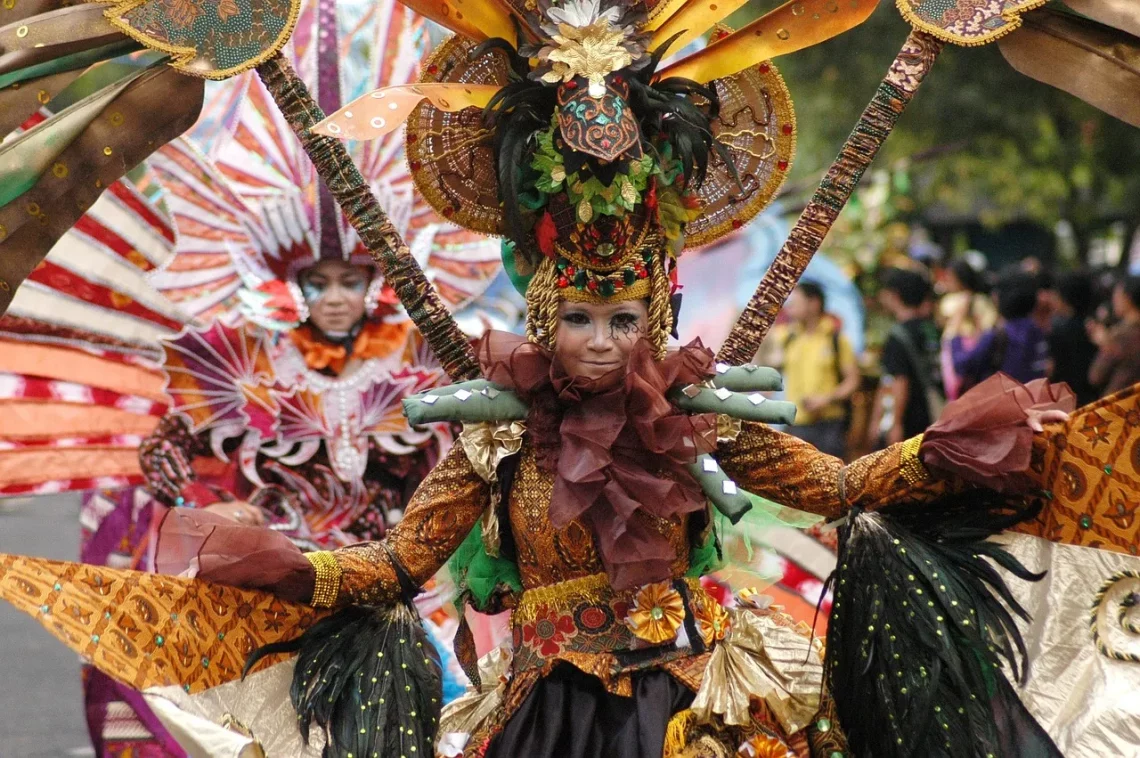
Exploring the Thai Way: Culture, Cuisine, and Traditions Unveiled
Exploring the vibrant tapestry of Thai culture, cuisine, and traditions opens a window into a world rich with history, diversity, and an undeniable zest for life. Thailand, often referred to as the “Land of Smiles,” is a country where ancient customs blend seamlessly with modern influences, creating a unique cultural identity that captivates both locals and visitors alike. The essence of Thai culture is characterized by its deep-rooted spirituality, artistic expressions, and the warmth of its people, all of which contribute to an inviting atmosphere that encourages exploration and understanding.
The Thai way of life is intricately tied to its geography and climate, which have shaped the customs and practices of its people. From the bustling streets of Bangkok to the tranquil beaches of the southern islands, each region boasts its own distinct traditions and flavors. The country’s cultural heritage is a rich tapestry woven from various influences, including indigenous beliefs, Buddhist practices, and colonial encounters. As you delve deeper into Thailand’s culture, you’ll discover the significance of family, community, and respect for nature, all of which play pivotal roles in shaping the Thai identity.
Beyond the surface, Thai cuisine stands as a testament to the nation’s cultural diversity. Renowned for its bold flavors, vibrant colors, and aromatic spices, Thai food is not just a meal; it’s an experience that reflects the heart and soul of its people. The meticulous preparation and presentation of dishes showcase a deep respect for culinary art and tradition. As we embark on this journey through Thailand’s cultural landscape, we will uncover the elements that make this Southeast Asian nation a captivating destination for those who seek to understand its rich heritage.
The Heart of Thai Culture: Customs and Beliefs
At the core of Thai culture lies a complex system of beliefs and customs that have evolved over centuries. Buddhism plays a central role in the lives of many Thais, influencing their daily practices, festivals, and social interactions. Temples, or “wats,” serve not only as places of worship but also as community centers where people gather for various events, from religious ceremonies to educational activities. The presence of Buddha statues is ubiquitous, symbolizing peace and mindfulness, which are essential aspects of Thai life.
Respect for elders and authority figures is deeply ingrained in Thai society. The hierarchical structure is evident in family dynamics, workplaces, and social settings. The traditional greeting, known as the “wai,” is a beautiful expression of this respect, where individuals place their palms together and bow slightly. This gesture embodies the Thai values of humility and reverence, highlighting the importance of interpersonal relationships.
Festivals are a vibrant expression of Thai culture, celebrated with enthusiasm throughout the year. Songkran, the Thai New Year, is one of the most famous festivals, marked by lively water fights and the pouring of water over Buddha statues as a form of cleansing and renewal. Loy Krathong, another significant celebration, involves floating intricately crafted lotus-shaped baskets on waterways, symbolizing the release of misfortunes. Such festivals not only strengthen community bonds but also provide a glimpse into the spiritual and cultural richness of Thailand.
Furthermore, traditional arts and crafts reflect the Thai way of life. From intricate silk weaving to elaborate wood carvings, these art forms are often passed down through generations, preserving the skills and stories of the past. Thai dance and music also play a vital role in cultural expression, with performances often depicting historical tales or religious narratives. Through these artistic endeavors, the essence of Thai culture is preserved and celebrated.
Culinary Delights: The Flavors of Thailand
Thai cuisine is renowned worldwide for its distinctive flavors and artful presentation. It is a harmonious blend of sweet, sour, salty, and spicy elements that tantalize the taste buds. The use of fresh herbs and spices, such as lemongrass, galangal, and Thai basil, elevates dishes to a level of complexity that is both satisfying and invigorating.
Street food is an integral part of the Thai culinary experience, with bustling markets and roadside stalls offering a plethora of options. From fragrant Pad Thai and spicy Som Tum (papaya salad) to savory Satay skewers, the diversity of street food reflects the creativity and resourcefulness of Thai cooks. Eating is not just about sustenance; it is a social activity that brings people together, fostering a sense of community and connection.
Regional variations in cuisine further enrich the culinary landscape of Thailand. Northern Thai cuisine, for instance, is characterized by its use of rice and fresh vegetables, often accompanied by spicy dipping sauces. In contrast, southern Thai dishes tend to be more robust, with an emphasis on coconut milk and seafood. The central region, home to Bangkok, is a melting pot of flavors, where traditional recipes meet modern influences, resulting in innovative dishes that continue to evolve.
The art of food presentation is equally important in Thai culture. Meals are often served family-style, with an array of dishes laid out for sharing. The visual appeal of the food, with its vibrant colors and intricate garnishes, enhances the dining experience, making it a feast for the eyes as well as the palate.
Moreover, cooking in Thailand is often considered a form of meditation, with the process being just as important as the final product. The careful selection of ingredients, the rhythmic chopping of vegetables, and the fragrant aromas wafting from the kitchen all contribute to a sense of mindfulness. This culinary philosophy reflects the Thai belief in the interconnectedness of food, culture, and community.
Traditions and Festivals: A Celebration of Life
Thailand’s rich tapestry of traditions and festivals showcases the vibrancy and resilience of its culture. Many of these celebrations are rooted in religious practices and reflect the agricultural calendar, marking important seasonal changes and harvests. Festivals serve as a way to honor deities, express gratitude, and strengthen community ties.
One of the most significant festivals is the Visakha Bucha, which commemorates the birth, enlightenment, and death of the Buddha. On this day, Thais participate in religious ceremonies, offering alms to monks and engaging in meditation. The atmosphere is serene, with candlelight processions illuminating the night, symbolizing the light of wisdom dispelling ignorance.
Another notable event is the King’s Birthday, a public holiday celebrated with great fervor. The Thai people express their love and respect for the monarchy through various activities, including parades, cultural performances, and fireworks. This celebration reflects the deep-rooted connection between the Thai people and their royal family, highlighting the importance of national identity and unity.
Traditional Thai weddings are elaborate and colorful affairs, steeped in rituals that symbolize the union of two families. These ceremonies often involve a series of customs, such as the “water pouring” ritual, where guests pour scented water over the couple’s hands, wishing them happiness and prosperity. The festivities can last for several days, emphasizing the communal aspect of marriage in Thai culture.
In addition to these larger celebrations, everyday traditions also play a vital role in Thai life. Rituals such as merit-making, where individuals perform good deeds to accumulate merit for the afterlife, are common practices that illustrate the spiritual dimension of Thai culture. These traditions, passed down through generations, remind the Thai people of their cultural heritage and the importance of living in harmony with one another and with nature.
Through these diverse traditions and festivals, the essence of Thai culture is vividly expressed, offering a glimpse into the values and beliefs that shape the lives of its people. The joyous spirit of celebration permeates every aspect of Thai life, making it a truly enchanting experience for anyone fortunate enough to witness it.
In conclusion, exploring the Thai way reveals a culture rich in history, flavors, and traditions that resonate with depth and meaning. Thailand’s unique blend of spirituality, culinary artistry, and vibrant celebrations creates an inviting atmosphere that encourages exploration and appreciation. Whether wandering through bustling markets, savoring exquisite dishes, or participating in lively festivals, the essence of the Thai way is sure to leave a lasting impression on the hearts of those who embark on this journey.
*Disclaimer: This article is for informational purposes only and does not constitute medical advice. For any health-related concerns, please consult a qualified healthcare provider.*




